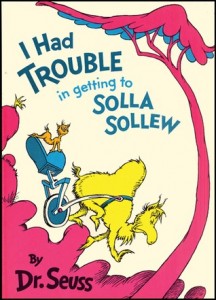Caring
If there has been a theme for this month, for me it has been caring.
Caring as in feeling anxiety and frustration when, for example, through a series of unfortunate events my younger son Braxton put a gash in his chin, requiring seven stitches—and then managed to reopen the wound the day after the sutures were removed.
Caring as in dreading the implications of an upcoming conference scheduled to address the fact that my older son Joseph no longer fits in at the center where he has spent the last few years. (I’ll say more about that later, when I know more. But right now the situation does not sound good.)
It’s human nature to feel some variety of care, about one thing or another, on an ongoing basis. I care just as much about my daughter Susannah as I do about her brothers, but these days (as far as I know) her life proceeds with little turmoil, or at least she’s able to handle issues as they arise with minimal interference from her mom and me. She brings me an algebra problem from her homework or she asks for a few bucks, and then all is well. These issues are neither urgent nor dire, and—also much appreciated—are easily solved. So far. I know not to take that blessing for granted.
In my life, the most acute examples of caring have come in connection with my role as a parent. Beyond that, life presents an endless menu of other potential concerns. Some of those opportunities merit more focus than others, but living means attending to them all in some fashion. Likewise, caring about an issue can lead to situations in which I can’t avoid noting a lack of care given it by other people.
We could all provide examples. Here’s one. An autism research center in Canada contacts me from time to time for input to support the various studies it runs. Most recently, they sent a questionnaire to be filled out by the developmental professional who works with Joseph. It came with a postage-paid return envelope, and consisted of a few sheets of questions with multiple-choice answers. The therapist accepted the package and said she would do it, for me (as if I were the beneficiary)—and then dropped the ball.
The study itself is a small matter from our point of view, in that the outcome is unlikely to affect Joseph’s life, but it’s disturbing to see a certain consistency in the professional’s failure to take that request seriously. Going back quite a few years, her colleagues have had a similar response to every request I ever brought them. (I allude to that here.)
The month’s theme probably got its start a few weeks ago when I reread a novel by Daniel Quinn. In a way, that story dramatizes a variant of an issue that’s at the heart of What About the Boy?: Life can present you with a problem that calls for a serious response. You can care very much about providing that response, even to the extent that providing it becomes bound up with your concept of who you are. If you can be satisfied with the extent of your own response (as I am at the moment with my responses to Susannah), all well and good. Disappointment begins if you think it would be appropriate for someone else to take a similar interest.


